The biopic has really overstayed its welcome. We’ve come a long way since the halcyon days of Patton, but in recent years, the genre has become synonymous with “larger than life” mythologizing, with the same or similar beats being hit over and over again.
Even last year, one need not look further than last year’s The Imitation Game and The Theory of Everything, two films focused on British scientific geniuses, both turgid examples of narrative exhaustion. The last time we saw a major film in this mold attempt to play against type to clear success was the David Fincher-Aaron Sorkin team up The Social Network. To wit, Sorkin has returned to the big screen with another sideways look at a computing visionary in the form of Steve Jobs. This time around, Sorkin finds himself teamed with Danny Boyle, and the difference it makes in the final product is fairly pronounced, in so much as it underlines how filmmakers can transmute the vision of their writers.
It’s easy to sit back and ask “what? Another Steve Jobs movie?” And after the outright hagiography that was the Ashton Kutcher-starring Jobs, a viewer couldn’t be blamed for skepticism. Yet, it’s Sorkin’s approach that may be the film’s best selling point. Focusing on three distinct periods, 1984 (the launch of the Mac), 1988 (the launch of Jobs’ NeXT system), and 1998 (the launch of the iMac), Sorkin’s script takes Jobs as a character on what basically amounts to a Sisyphian journey, with the elements of repeated trial that this implies.
Each segment of the film, while buffered with an assault of newsclips that bridge the eras, all take place in a backstage setting not unakin to Topsy Turvy or even last year’s Birdman. While Steve Jobs doesn’t play to a one-shot gimmick like the latter, it does find its center in the emotional well that surrounds the build-up to each announcement in a very symphonic, crescendo-like fashion. Jobs (Michael Fassbender), in each epoch, is surrounded by the same cast of characters, Apple Inc co-founder Steve Wozniak (Seth Rogen), Apple CEO John Sculley (Jeff Daniels), confidant Joanna Hoffman (Kate Winslet), Mac team member Andy Hertzfeld (Michael Stuhlbarg), and former girlfriend and mother of his child Chrisann Brennan (Katherine Waterston).
These various players cycle in and out, behind closed doors, holding court with Jobs on differing priorities, and usually at odds with Jobs in some form or fashion. Nested inside each act is a flashback sequence that plays behind a key confrontation, be it Wozniak and Jobs discussing their garage origins or Sculley and Jobs debating the latter’s ouster from the company, these scenes are timed at such a pitch perfect placement that they stand as visual counter-melody. This in turn makes sense given how many explicit references to music are made throughout, from scoring swells that play throughout the background of the film’s on-going events and even down to Jobs outright elaborating on the role of a conductor in another insightful moment: “The musicians play their instruments, I play the orchestra”.
In some ways, a viewer could very well claim that Sorkin seems less interested in Jobs the man, and more enthused by how he can actively utilize his life’s details to underline his own on-going fascination with towering figures. Perhaps this is true, and there are moments that feel somewhat under-served, particularly where Chrisann and Lisa (Jobs’ daughter) are concerned. Regardless, the mechanics of the script are so finely tuned and watchmaker-like, that the effort, even given a few oversights, is an admirable one.
Danny Boyle, the other half of the equation, makes for a somewhat more interesting case. His career has been marked by two very different phases: the boundless, punk rock-infused filmmaker that created energetic bursts of cinema like Trainspotting and 28 Days Later, and the latter sentimentalist that gave us Slumdog Millionaire and 127 Hours. After his disastrous turn with the heist film Trance, the question on many minds was which version of Boyle would we get? It’s not wholly surprising to respond with both to some extent.
Boyle, if nothing else, remains a visually flashy presence behind the camera, and there are brief glimpses between scenes that allow him to flex that very muscle. Even a moment when text in “underground club poster” font flashes on screen to line up with something Jobs says feels intrinsically like a moment only Boyle could muster. For the most part though, the director plays mostly second fiddle to the material that’s already there, and where someone like David Fincher gracefully turned Sorkin’s words into something wholly different 5 years ago, Boyle doesn’t quite have that same urgency. Though when his worst tendencies roar into focus (and they do a bit by the end of the film) it becomes the only time that Steve Jobs feels as though it’s about to topple.
The entire cast is basically top notch throughout. Fassbender, probably one of the finest actors of his generation (see him completely own the recent X-Men offerings, for example, or better yet, his two Steve McQueen collaborations), frames Jobs as a unambiguous prick, more or less vice-free, but still leaves his audience wrestling with the central question of “can you be a visionary but also a nice person, or are the two mutually exclusive?”. Everyone on hand gets to benefit from the ability to chew scenery in some form or fashion given whose words they’re relaying, though there are a few points where some fall into the Whedon/Sorkin “everyone has the same level of cleverness” trap. That aside, Fassbender is awards-worthy here, yet again.
Steve Jobs doesn’t quite reach that wonderful peak that its pedigree would lead you to hope, but it’s not far off, and it’s easily one of the best films of its type in a while. It’s surely more adventurous a film than we could ever have expected given the idolatry surrounding its central figure. That’s good enough for me.


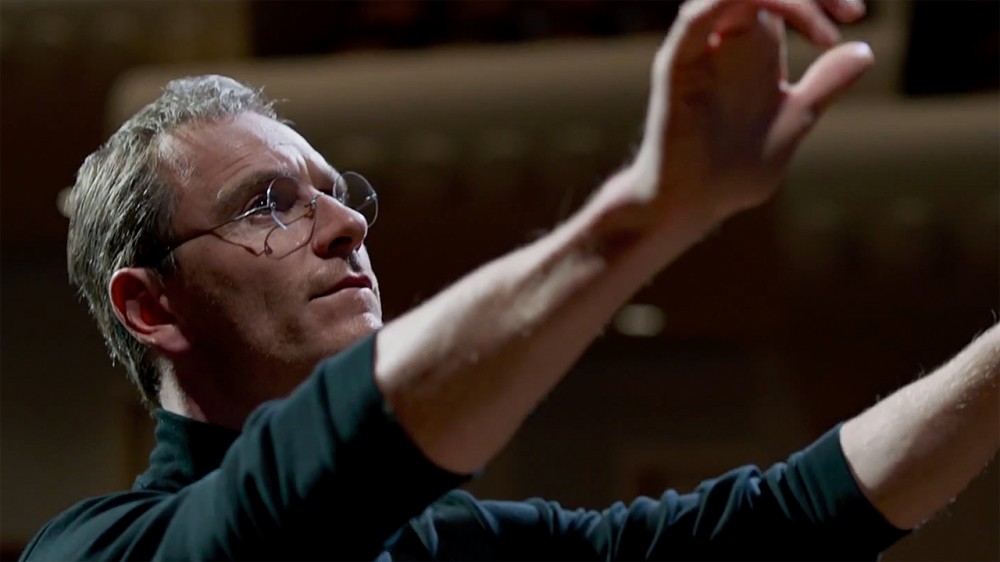
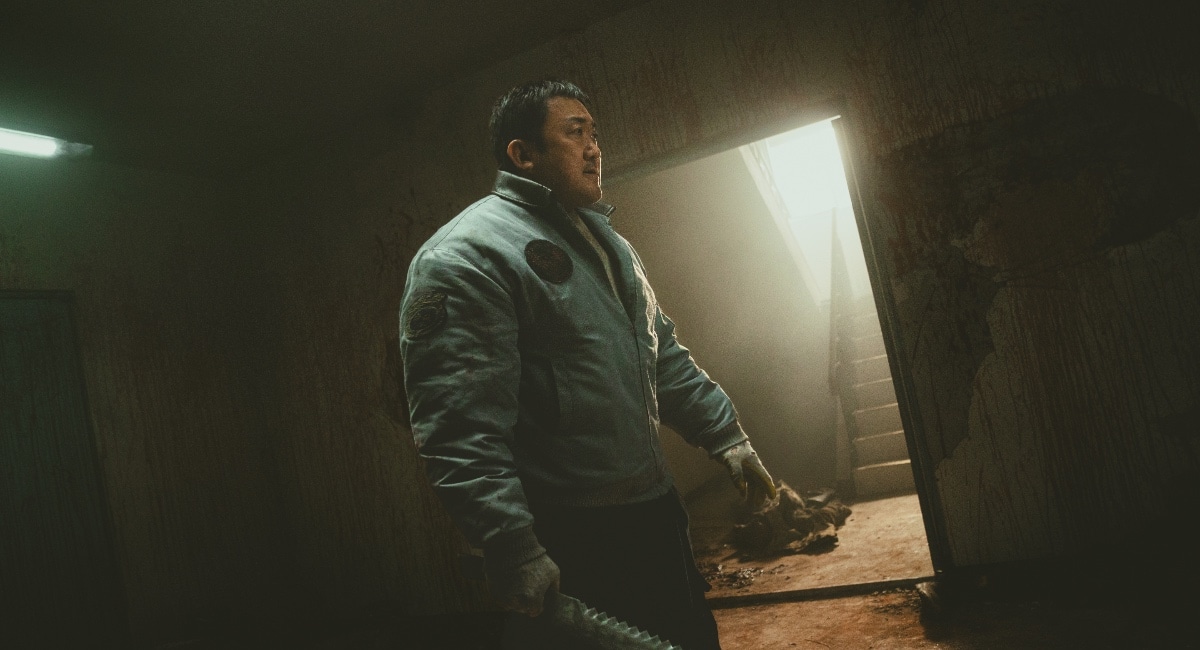
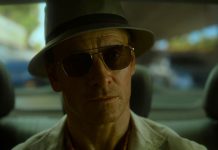
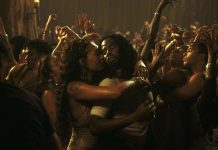
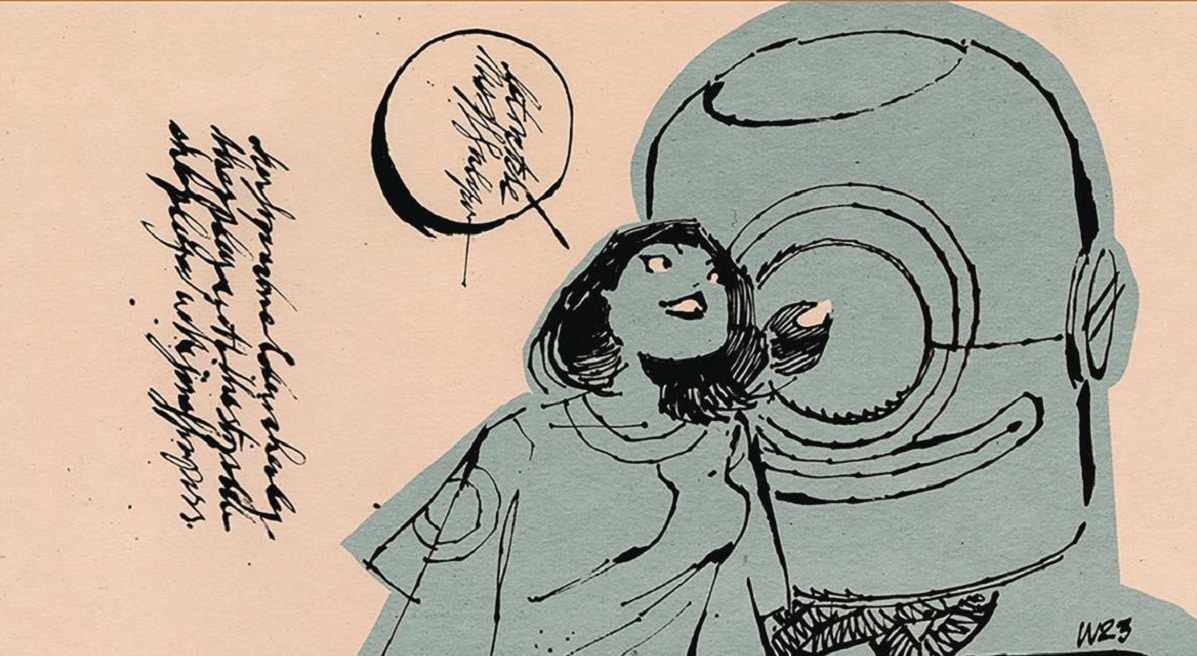

Michael Fassbender had 3, not 2 collaborations with Steve McQueen. “Hunger” is as compelling as “Shame” and “Twelve Years A Slave”.
…and this relates to comics,…how?
loved when Steve Jobs wrote Uncanny X-Men
Right you are Rahma, I’ll blame writing this up at 1 am for that brain fart.
Comments are closed.